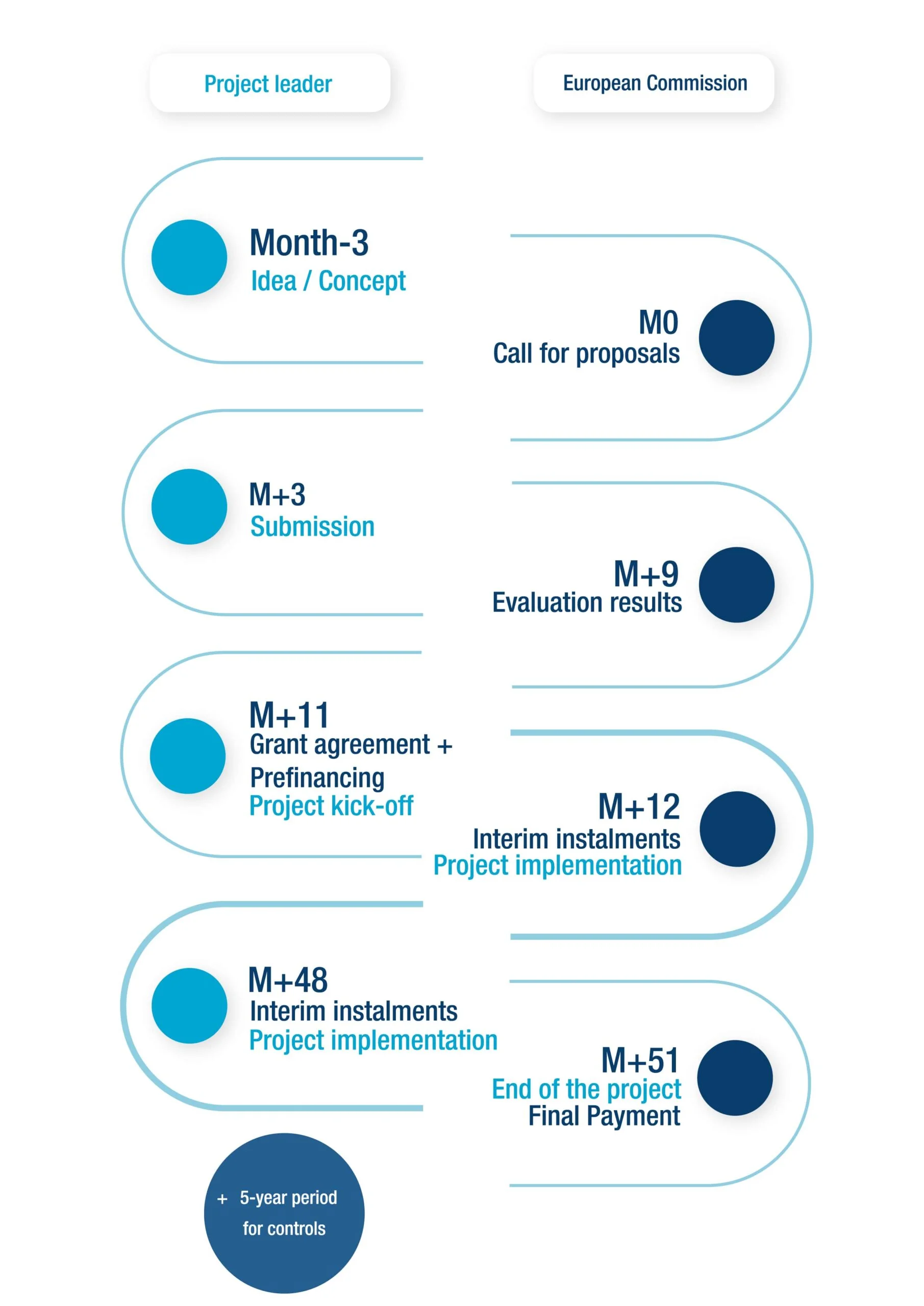+33(0)1 42 54 60 64 | contact@welcomeurope.com
+33(0)1 42 54 60 64 | contact@welcomeurope.com
Grants to support the educational, vocational and personal development of people in the fields of education, training, youth and sport, in Europe and beyond, thus contributing to sustainable growth, employment and social cohesion and to the strengthening of European identity.
28 billion euro
Association & NGO
EU & International Organisation
Research centre & university
Training organisation & school
Grant – Co-financing
ERASMUS + is a key instrument providing funding for activities in support of learning mobility, cooperation and innovative policy development in the fields of education, training, youth and sport at the European level.
Objectives
Structure
Key Action 1 – Learning mobility of individuals
Key Action 2 – Cooperation among organisations and institutions
Key Action 3 – Support to policy development and cooperation
Jean Monnet Actions
Priorities
Among financed actions
Under key action 1:
Under key action 2:
Under key action 3:
Jean Monnet Actions:


| Cookie | Duration | Description |
|---|---|---|
| cookielawinfo-checbox-analytics | 11 months | This cookie is set by GDPR Cookie Consent plugin. The cookie is used to store the user consent for the cookies in the category "Analytics". |
| cookielawinfo-checbox-functional | 11 months | The cookie is set by GDPR cookie consent to record the user consent for the cookies in the category "Functional". |
| cookielawinfo-checbox-others | 11 months | This cookie is set by GDPR Cookie Consent plugin. The cookie is used to store the user consent for the cookies in the category "Other. |
| cookielawinfo-checkbox-necessary | 11 months | This cookie is set by GDPR Cookie Consent plugin. The cookies is used to store the user consent for the cookies in the category "Necessary". |
| cookielawinfo-checkbox-performance | 11 months | This cookie is set by GDPR Cookie Consent plugin. The cookie is used to store the user consent for the cookies in the category "Performance". |
| viewed_cookie_policy | 11 months | The cookie is set by the GDPR Cookie Consent plugin and is used to store whether or not user has consented to the use of cookies. It does not store any personal data. |
